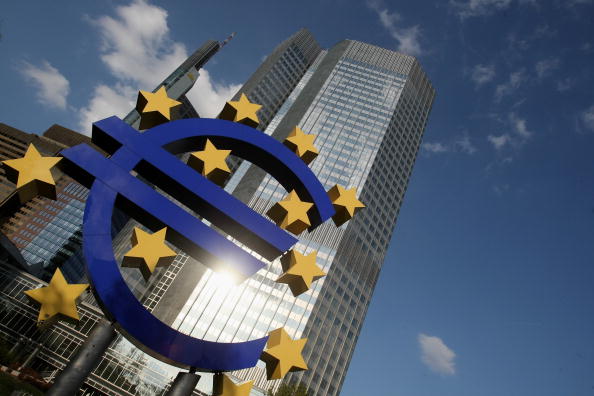ECB: Record-low interest rates causing ‘excessive risk-taking’

Record-low interest rates in the Eurozone have led to “excessive risk-taking in some sectors” which could threaten financial stability, the European Central Bank (ECB) has warned.
The ECB defended low rates in its latest financial stability report, however, saying they were necessary to support economic activity in the struggling Eurozone.
Read more: ECB warned over bond-buying’s effect on stock market
The report, the first under new president Christine Lagarde, comes at a time when the upper ranks of the ECB are divided over rates. In September, Germany’s representative on the Bank’s board quit in protest over its ultra-loose monetary policy.
The ECB’s deposit rate is currently minus 0.5 per cent, meaning banks pay to keep money in the central bank’s vaults. Many board members, particularly those from northern European states, argue this damages banks’ profits and causes them to pile into riskier assets in pursuit of profit.
ECB vice president Luis de Guindos today noted this argument. He acknowledged “an increase in risk-taking which warrants continuous and close monitoring”.
“Authorities should use available tools to address the build-up of vulnerabilities where possible,” he said.
The ECB’s report warned that “non-banks” such as investment funds, insurance companies and pension funds have taken on more risk in response to low interest rates, which limit the amount of money that can be earned from bonds.
If asset prices were to sharply fall, “growing credit and liquidity risk in some parts of the euro area non-bank financial sector… may lead non-banks to respond in ways that cause stress to spread to the wider financial system,” the ECB said. This might include quickly selling off assets, creating a downward price spiral.
The ECB also said that “banks’ profitability prospects have deteriorated further,” acknowledging one of the main objections to negative interest rates.
Major European banks such as Deutsche and UBS have sounded the alarm over interest rates and profitability. The struggles of the area’s banks was epitomised by Deutsche’s decision to lay off 18,000 workers in the summer.
Read more: ‘Super’ Mario Draghi’s odyssey comes to an end
Worryingly for the Eurozone’s financial sector, the report said: “Return on equity of euro area banks is expected to face further pressure from both a weaker economic outlook and persistent cost inefficiencies and overcapacity.”
The Eurozone’s central bank said the authorities in member states must use “targeted macroprudential measures, where available, to address the associated risks to financial stability”.
(Image credit: Getty)